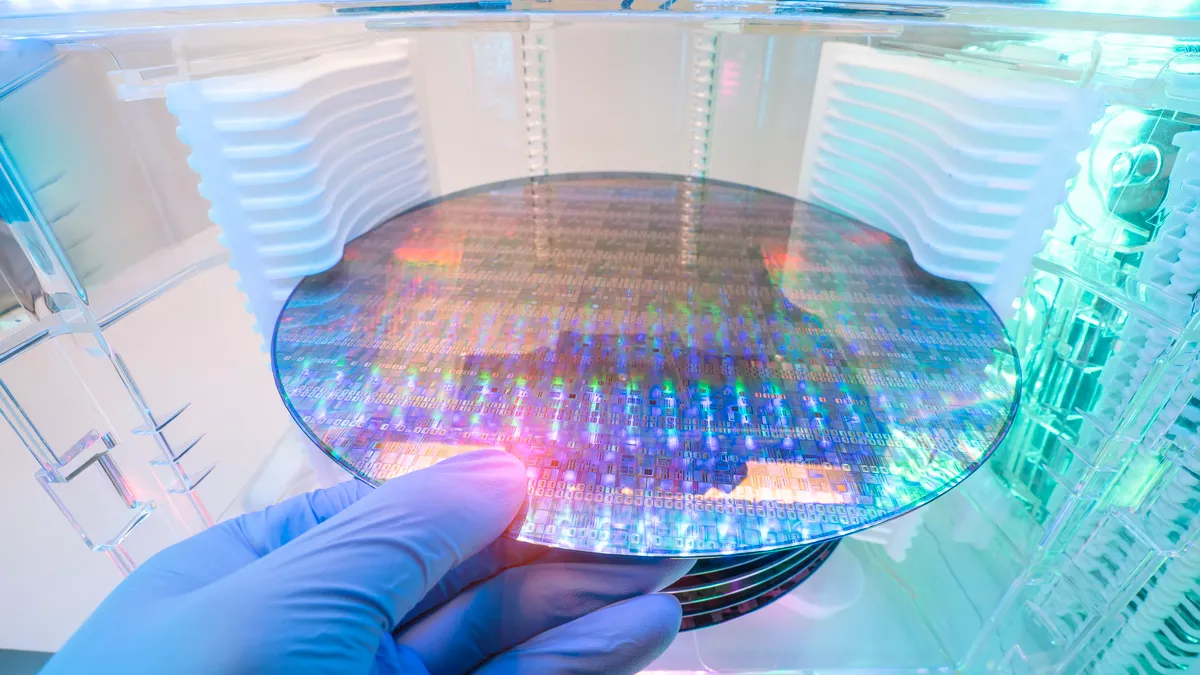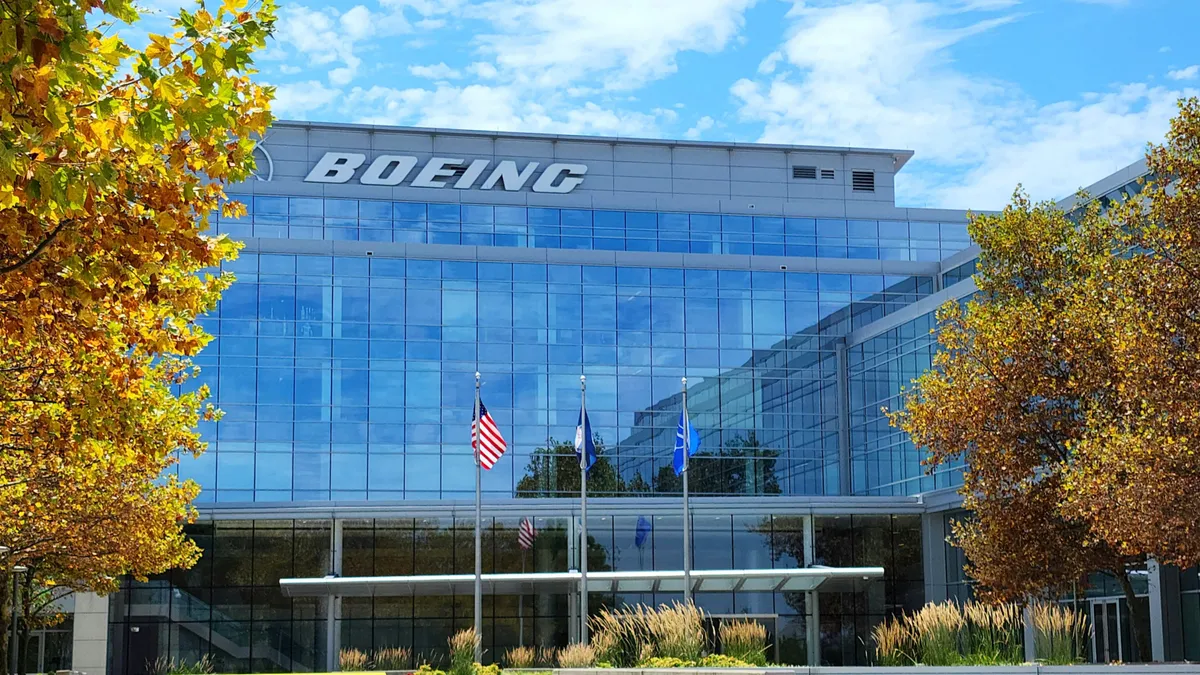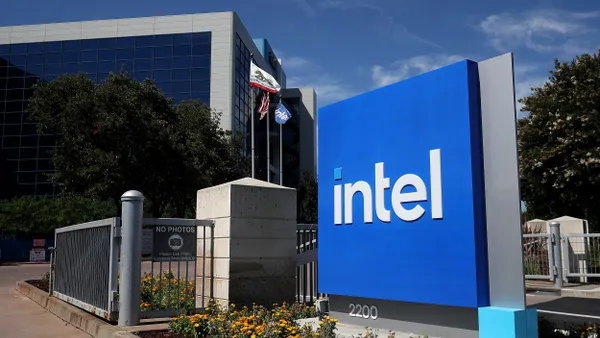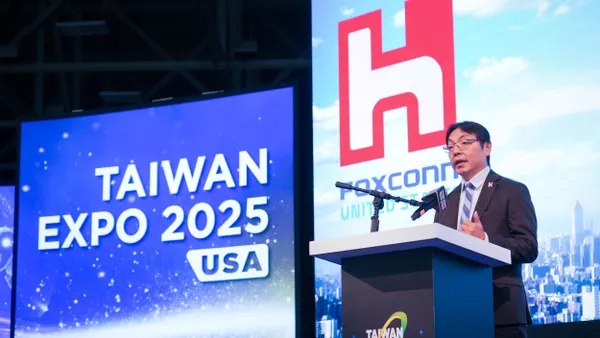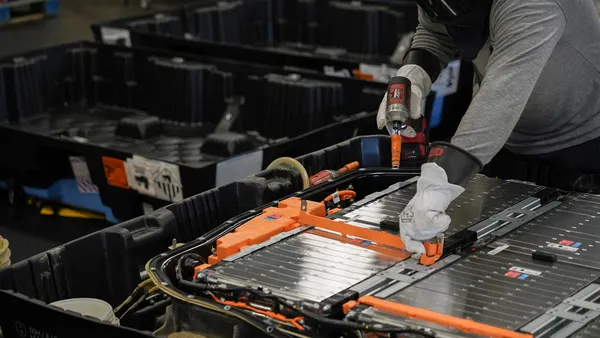Dive Brief:
- Arizona State University and chip equipment maker Applied Materials are partnering on a more than $270 million research and development center for semiconductor technologies in Tempe, Arizona, the two organizations announced last week.
- The “Materials-to-Fab” Center will feature Applied Material’s semiconductor manufacturing equipment, available for use by students, faculty and other companies to enable faster prototyping of new ideas.
- "This is the beginning of a reconfiguration of discovery and translational research outcomes in response to real-world challenges and the development of next-generational processes, materials, equipment and workforce,” ASU President Michael Crow said in a statement. The center is expected to be operational within two years.
Dive Insight:
The partnership is part of Applied Materials' effort to advance semiconductor manufacturing capabilities.
The California-based company announced a $4 billion collaborative research and development center for process technology and manufacturing equipment in Silicon Valley in May, which includes establishing a network of leading university partners focused on materials and process innovation.
"Applied Materials is excited to build upon our successful track record of collaboration with ASU by adding the Materials-to-Fab Center to our university innovation network," President and CEO Gary Dickerson said in a statement.
The new facility at ASU will be home to Applied Materials’ center of excellence for materials deposition technology, which refers to the part of the chip production process where thin layers of various materials are deposited onto a wafer’s surface.
The company is expected to invest over $200 million in the center, including capital investments, equipment operation and maintenance, research and scholarship funding. The project is also supported by investments of $17 million from ASU and $55 million from the state.
“Applied Materials envisions the MTF Center playing a key role in accelerating materials engineering innovations, commercializing academic research and strengthening the pipeline of future semiconductor industry talent,” Dickerson said.
Applied Materials is also working to build an inclusive talent pipeline for the semiconductor industry at ASU. The company said it plans to launch an endowment fund to provide scholarships to first generation and underrepresented minority students in the university’s Ira A. Fulton Schools of Engineering, and provide grants to women pursuing undergraduate degrees in engineering.
ASU has similarly invested in creating a talent pipeline for the industry. The university launched a school for manufacturing last fall in part to cater to the state’s burgeoning semiconductor industry.
“What Applied Materials and ASU are doing is smart, and the successful implementation of the Materials-to-Fab Center will establish an innovation and job creation engine for the semiconductor ecosystem in Arizona,” Arizona Gov. Katie Hobbs said in a statement.



